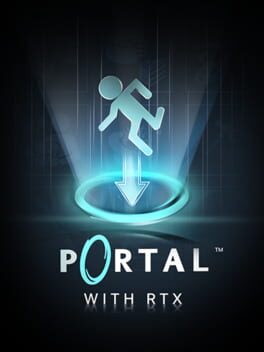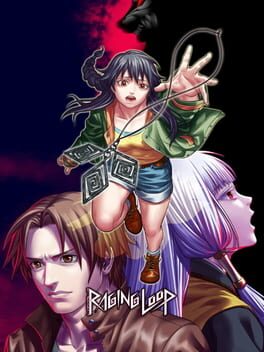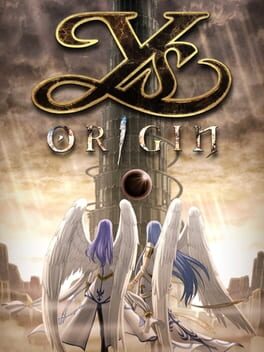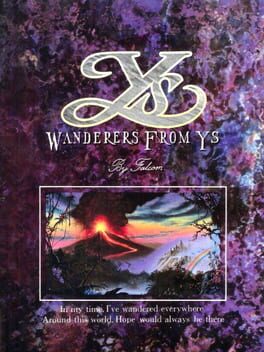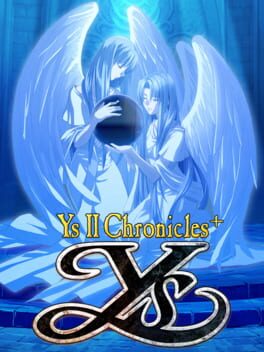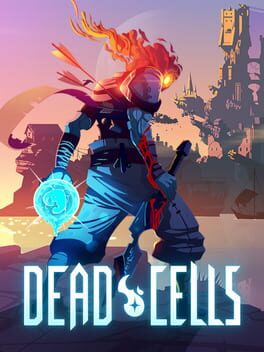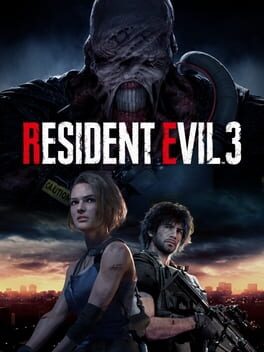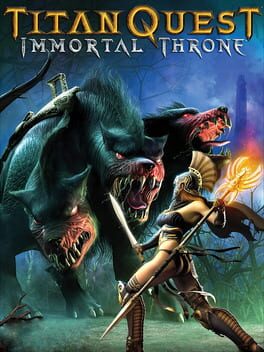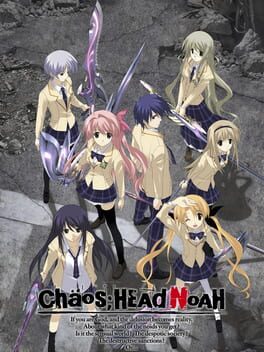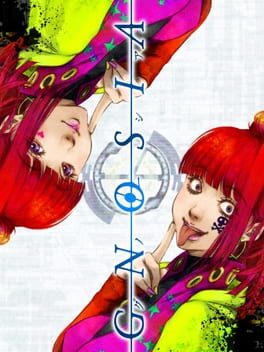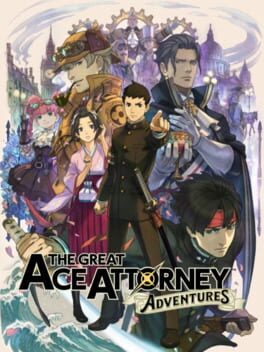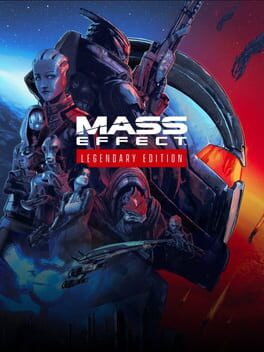cdmcgwire
BACKER
2022
Edit: I think my original comments were a bit too reactionary, so I've toned it down. Some of my original sentiments still remain, however.
I don't understand this has prompted the defensive reaction it has. It's worth remembering when going in:
This is a free, novelty tech demo for high end Nvidia GPUs
- Yes, it will run like crap on anything less than a 3080 with the bells and whistles on.
- Yes, the textures were all modified to prioritize showcasing that tech over original art.
But it neither replaces the original game nor costs anything. I'm sure a modder will make a new version of the textures that both works with the tech and looks closer to the original.
It's fun. If you can run it, give it a shot.
I've seen a lot of comments (and video essays) that — whether intentional or not — give the impression that this project was iill-conceived or done without any heart, and I can agree that some visual changes don't maintain the original visual identity and atmosphere.
However, despite being attached to Nvidia, this really is a small team "mod." Prototype projects like this don't generate revenue and were likely justified with an advertising fund. The labor required likely wasn't huge, as this was one testbed for their upcoming "Remix" technology, but the effort of creating a whole game's worth of uprezzed assets probably still made this a very 'inefficient' use of that advertising fund.
What I'm saying is that this wasn't comparable to Fortnite's switch to UE5, as a recent comparison I've seen. That game and the engine are Epic's main business now. Nvidia is a hardware engineering group that needed a showcase project running quickly. Critique it as you will, but keep that context in mind.
I don't understand this has prompted the defensive reaction it has. It's worth remembering when going in:
This is a free, novelty tech demo for high end Nvidia GPUs
- Yes, it will run like crap on anything less than a 3080 with the bells and whistles on.
- Yes, the textures were all modified to prioritize showcasing that tech over original art.
But it neither replaces the original game nor costs anything. I'm sure a modder will make a new version of the textures that both works with the tech and looks closer to the original.
It's fun. If you can run it, give it a shot.
I've seen a lot of comments (and video essays) that — whether intentional or not — give the impression that this project was iill-conceived or done without any heart, and I can agree that some visual changes don't maintain the original visual identity and atmosphere.
However, despite being attached to Nvidia, this really is a small team "mod." Prototype projects like this don't generate revenue and were likely justified with an advertising fund. The labor required likely wasn't huge, as this was one testbed for their upcoming "Remix" technology, but the effort of creating a whole game's worth of uprezzed assets probably still made this a very 'inefficient' use of that advertising fund.
What I'm saying is that this wasn't comparable to Fortnite's switch to UE5, as a recent comparison I've seen. That game and the engine are Epic's main business now. Nvidia is a hardware engineering group that needed a showcase project running quickly. Critique it as you will, but keep that context in mind.
2015
I was quite surprised by how fun this VN was, despite being a bit disappointed by how static it was. Having just played Gnosia, I read the setup of Raging Loop and expected something similar but RL is firmly within a classic VN structure. With that expectation, however, it excels as one.
The highlight here, and what you would hope for a hidden role type setup, is the characters. I don't think there's one poorly written character in the bunch and even the ones you might not like at least add to the narrative, engaging in the proceedings in a way that feels reasonable and yet dramatic. The main character being my favorite as his quips are roguishly entertaining and he's sometimes even more mysterious than the people he finds himself involved with. They don't keep his motivations locked away, though, so you still can more or less understand why he's acting the way he does.
The pacing of the plot is overall pretty snappy as well. It drags for me a little bit once it explains the rules of the "game" (likely because of my recent plays, again) but there's enough important differences here that you'll still want to pay attention to it all. As a mystery story there's a lot of subtlety in the moment to moment proceedings and I think they strike a good balance of "keeping things happening" and "explaining why it happened."
If there's anything I was disappointed by in the story, though, it was the ending. It was well executed and interesting, but not as surprising or revelatory as it might be for most readers. If you've read Higurashi and seen Owarimonogatari, you'll probably see what I mean when you play. And I still suggest you do, because the journey is still quite enjoyable off the writing alone.
As for the bells and whistles, this a pretty full featured VN experience and the navigation options are more than sufficient for the kind of branching it uses. Good enough even that I wished they had actually made the route traversal a little more complex near the end to push the mystery element a bit more.
In any case, while not the most mind blowing story out there, it really is a solid one. Do recommend.
The highlight here, and what you would hope for a hidden role type setup, is the characters. I don't think there's one poorly written character in the bunch and even the ones you might not like at least add to the narrative, engaging in the proceedings in a way that feels reasonable and yet dramatic. The main character being my favorite as his quips are roguishly entertaining and he's sometimes even more mysterious than the people he finds himself involved with. They don't keep his motivations locked away, though, so you still can more or less understand why he's acting the way he does.
The pacing of the plot is overall pretty snappy as well. It drags for me a little bit once it explains the rules of the "game" (likely because of my recent plays, again) but there's enough important differences here that you'll still want to pay attention to it all. As a mystery story there's a lot of subtlety in the moment to moment proceedings and I think they strike a good balance of "keeping things happening" and "explaining why it happened."
If there's anything I was disappointed by in the story, though, it was the ending. It was well executed and interesting, but not as surprising or revelatory as it might be for most readers. If you've read Higurashi and seen Owarimonogatari, you'll probably see what I mean when you play. And I still suggest you do, because the journey is still quite enjoyable off the writing alone.
As for the bells and whistles, this a pretty full featured VN experience and the navigation options are more than sufficient for the kind of branching it uses. Good enough even that I wished they had actually made the route traversal a little more complex near the end to push the mystery element a bit more.
In any case, while not the most mind blowing story out there, it really is a solid one. Do recommend.
2006
This was my first of this era of Ys, and wow, what a game. The part that always seemed the most iffy to me when it popped up on Steam in years past was actually the best part:
The combat in Ys Origin is tight.
Even outside of the context of the series this is just a game every action-RPG enthusiast should play. It's quick, it's fluid, it keeps you on your toes, it doesn't overstay its welcome, but if you wanna stick around they give you plenty to do.
What I was kind of wondering about was how the game would play without a dedicated defense option. I'm a big fan of the kind of interplay of offense and defense you see in Dark Souls and modern Ys and it's hard for me to go back to the way things were done in Diablo and other older style ARPGs where the defense option was "grit teeth then chug potion." Thankfully Origin doesn't fall into that with use of hitstun, well designed attack patterns, and a set of player skills that allow for aggressive counters. I found that it established a rhythm at a great pace and kept adding just enough new obstacles to keep things fresh without disrupting the flow (aside from one particular section).
The greatest highlight for me were the bosses. There were well implemented platormer-esque elements without turning them into completely rote exercises as the RPG style health and damage elements were still at play. To put it another way, you can play it clean and proper if you know all the patterns and punch above your stat line, or you can leverage your stats to punch as hard as you can before you're whittled away by stray hits and misjumps, or some mix of the two. Very fun, very memorable.
One big difference in this game from the other Ys titles I've played is that there are multiple characters you can play as, but unlike modern Ys you're locked into that character for the whole playthrough to see their unique version of events. One character has to be unlocked, so I won't say much about them, but the initial two are an axe warrior and a mage. The warrior was more my speed as her playstyle was more interesting to me (fairly reminiscent to Dana in VIII) while the mage plays closer to a shoot-em-up.
Story wise, its definitely lighter than Trails still and didn't get me the way Lacrimosa did. But, paired with the music, its still an enjoyable tale that was just compelling enough to make me want to see all three character routes to completion. Having played Ys I & II, it was also fun to see many of the pieces of Adol's journey fall into place.
One last positive note: if you really dig the combat, there's also a bunch of extra game modes and associated unlockables you can dig into after the fact as well, which is cool to see. I'll have to skip for now, but they seem quite nice to have if you're playing on Steam Deck or PSP. Been a while since I've seen that but I shouldn't be surprised given this was a mid 00's title.
I really don't have any complaints with this game aside from that some way find the three routes a bit repetivitive in terms of dungeon content. I don't mind that all because the playstyle is so different between characters and it plays so smoothly it's like replaying an arcade game. But I know I'm particularly lenient to that kind of thing.
So overall, not revolutionary by any stretch, but very, very solid. Highly recommend to all action fans.
The combat in Ys Origin is tight.
Even outside of the context of the series this is just a game every action-RPG enthusiast should play. It's quick, it's fluid, it keeps you on your toes, it doesn't overstay its welcome, but if you wanna stick around they give you plenty to do.
What I was kind of wondering about was how the game would play without a dedicated defense option. I'm a big fan of the kind of interplay of offense and defense you see in Dark Souls and modern Ys and it's hard for me to go back to the way things were done in Diablo and other older style ARPGs where the defense option was "grit teeth then chug potion." Thankfully Origin doesn't fall into that with use of hitstun, well designed attack patterns, and a set of player skills that allow for aggressive counters. I found that it established a rhythm at a great pace and kept adding just enough new obstacles to keep things fresh without disrupting the flow (aside from one particular section).
The greatest highlight for me were the bosses. There were well implemented platormer-esque elements without turning them into completely rote exercises as the RPG style health and damage elements were still at play. To put it another way, you can play it clean and proper if you know all the patterns and punch above your stat line, or you can leverage your stats to punch as hard as you can before you're whittled away by stray hits and misjumps, or some mix of the two. Very fun, very memorable.
One big difference in this game from the other Ys titles I've played is that there are multiple characters you can play as, but unlike modern Ys you're locked into that character for the whole playthrough to see their unique version of events. One character has to be unlocked, so I won't say much about them, but the initial two are an axe warrior and a mage. The warrior was more my speed as her playstyle was more interesting to me (fairly reminiscent to Dana in VIII) while the mage plays closer to a shoot-em-up.
Story wise, its definitely lighter than Trails still and didn't get me the way Lacrimosa did. But, paired with the music, its still an enjoyable tale that was just compelling enough to make me want to see all three character routes to completion. Having played Ys I & II, it was also fun to see many of the pieces of Adol's journey fall into place.
One last positive note: if you really dig the combat, there's also a bunch of extra game modes and associated unlockables you can dig into after the fact as well, which is cool to see. I'll have to skip for now, but they seem quite nice to have if you're playing on Steam Deck or PSP. Been a while since I've seen that but I shouldn't be surprised given this was a mid 00's title.
I really don't have any complaints with this game aside from that some way find the three routes a bit repetivitive in terms of dungeon content. I don't mind that all because the playstyle is so different between characters and it plays so smoothly it's like replaying an arcade game. But I know I'm particularly lenient to that kind of thing.
So overall, not revolutionary by any stretch, but very, very solid. Highly recommend to all action fans.
Gotta be honest, I got right up to the last boss, gave it a couple tries, then gave up and watched the ending on YouTube so I could hurry up and relinquish control of my sister's TV back to her (as she glared daggers at me). I had some fun with this title, but the sidescroller experience seems to have been a miss.
At the micro level, the game feels like a very solid NES title. So about par the course with Falcom's approach to console technology even into the modern day. Movement acceleration of any kind is practically non-existent, so paired with the low framerate inherit to the system and high movement speed, you end up overshooting or undershooting quite often. It's not bad per say, it's just all problems that were already solved by its peers in the sidescroller space.
And that really, for me, gets to the macro level issue with this game. I can understand if they made a sidescroller because the devs at Falcom really wanted to try, but it ultimately feels like they made a sidescroller because "that's what sells on consoles" and then tried to put a few of the trappings on Ys over that.... Except that this was actually originally a PC88 release and didn't see a port for over a year, so it effectively was an NES game rather than an SNES. Looking at footage of the original version (which is actually rather gorgeous for '89) it seems that the original played at a lower framerate and the combat was tuned for that. So comparing it to SMW or Secret of Mana would be a bit inappropriate, but I still hold that console ports were in the works from early in development, based on the decisions made even in the original release.
Aside from the action, the adventure elements are where I'm a bit more disappointed as they're a big downgrade from what was in Ys I & II. The progression of events is very linear with only a few backtracking curveballs to break things up and a couple of chests in missable nooks and crannies. There's still a little bit of their signature emphasis on the NPC characters, but with the english translation the dialogue is pretty stilted. Can't comment on how that compares to the rest of Falcom's writing at the time, though, since I only played the Complete+ versions of Ys I & II.
Despite all my complaining, it gets a bit of a "whole is better than the sum of its parts" effect where none of the flaws are severe enough that you can't enjoy it if you know what you're signing up for. For prospective players, this is a game for action RPG enthusiasts curious about the history of the genre and Falcom diehards (which I am both). So if you're a modern Ys fan and don't want to dive this deep into retroland, just play the remake "The Oath in Felghana." And if you're just looking for SNES games to play, you can probably do better.
But it has its charm.
Fun little bonus fact: The first time I played this game was actually when I was about 5 or 6 years old because my friend randomly owned it. We all called it "Why-Es" of course and had no idea how to play it, but I always remembered it because I had never seen a SNES game with RPG elements like the ones I liked in Neverwinter Nights.
It's a bit wild to me that 20 years later I'm learning Japanese just to play their games before they're officially localized...
At the micro level, the game feels like a very solid NES title. So about par the course with Falcom's approach to console technology even into the modern day. Movement acceleration of any kind is practically non-existent, so paired with the low framerate inherit to the system and high movement speed, you end up overshooting or undershooting quite often. It's not bad per say, it's just all problems that were already solved by its peers in the sidescroller space.
And that really, for me, gets to the macro level issue with this game. I can understand if they made a sidescroller because the devs at Falcom really wanted to try, but it ultimately feels like they made a sidescroller because "that's what sells on consoles" and then tried to put a few of the trappings on Ys over that.... Except that this was actually originally a PC88 release and didn't see a port for over a year, so it effectively was an NES game rather than an SNES. Looking at footage of the original version (which is actually rather gorgeous for '89) it seems that the original played at a lower framerate and the combat was tuned for that. So comparing it to SMW or Secret of Mana would be a bit inappropriate, but I still hold that console ports were in the works from early in development, based on the decisions made even in the original release.
Aside from the action, the adventure elements are where I'm a bit more disappointed as they're a big downgrade from what was in Ys I & II. The progression of events is very linear with only a few backtracking curveballs to break things up and a couple of chests in missable nooks and crannies. There's still a little bit of their signature emphasis on the NPC characters, but with the english translation the dialogue is pretty stilted. Can't comment on how that compares to the rest of Falcom's writing at the time, though, since I only played the Complete+ versions of Ys I & II.
Despite all my complaining, it gets a bit of a "whole is better than the sum of its parts" effect where none of the flaws are severe enough that you can't enjoy it if you know what you're signing up for. For prospective players, this is a game for action RPG enthusiasts curious about the history of the genre and Falcom diehards (which I am both). So if you're a modern Ys fan and don't want to dive this deep into retroland, just play the remake "The Oath in Felghana." And if you're just looking for SNES games to play, you can probably do better.
But it has its charm.
Fun little bonus fact: The first time I played this game was actually when I was about 5 or 6 years old because my friend randomly owned it. We all called it "Why-Es" of course and had no idea how to play it, but I always remembered it because I had never seen a SNES game with RPG elements like the ones I liked in Neverwinter Nights.
It's a bit wild to me that 20 years later I'm learning Japanese just to play their games before they're officially localized...
2013
It's been a year since I played Ys I, so my frame of reference is a bit fuzzy, but I'm quite confident in saying this was a significant step up. That, or the Falcom indoctrination has progressed even further (likely).
For a small game originally designed in the 80s -- and from what I can tell has mostly received aesthetic and presentational updates since -- there's a surprising amount of depth to the adventure elements of the game. Mindlessly wandering around will get you nowhere and there are no obvious guides, but talking to NPCs and paying attention to the details of the environments will give you plenty of clues for the most part, so you can enjoy a pretty natural progression to the game....
... If you can navigate the maps, because the combat zones in Ys II are very complex and there's no in-game map system. You will get turned around frequently. I definitely don't remember the last game being even half as labyrinthian as this one. And it's not just the last dungeon, it's the whole game. But that's actually a big plus for me as it's been a looong time since a game has actually challenged my sense of direction and there are enough unique markers and shapes that it is possible to memorize the important parts after a few passes.
Thankfully, combat is quick and fluid making it really painless to get around. Charge everything at a diagonal and you're good. Takes a bit to get the muscle memory for the sweet spots when you're in narrow corridors, but once you got it, it's pretty darn easy yet oddly satisfying. Definitely not a flawless system, but frankly holds up better than most of its peers even into the next decade. (Also, I think there's a small QoL improvement from 1 in that you can attack diagonally instead of just off-center)
There's also quite a few hidden details in the world that are very entertaining to dig up or chance upon.
The art is wonderfully nostalgic: a nice refresh of that older style of fantasy. The character sprite work isn't very dramatic but is surprsingly expressive at times, though not quite to the same level as Trails in the Sky. The bosses, however, punch well above their weight. And the design of one in particular might go down as one of the most memorable of all the Falcom games I've played, if only for how unexpected it was and yet oddly fitting.
The story was simple but well executed, especially for its era. Falcom's distinct emphasis on characters is present even this far back. It's not award winning, but the NPCs actually have a presence and personality to them and serve as significant driving motivations to the plot. An approach that only a select few studios would really use until the sixth generation of consoles (and it's arguable how many today do it well).
Anyway, this game is definitely worth a playthrough for any action-adventure fans. It's short but sweet and comes at a good value in the Chronicles+ double pack. Aged quite well and has been lovingly tended to.
For a small game originally designed in the 80s -- and from what I can tell has mostly received aesthetic and presentational updates since -- there's a surprising amount of depth to the adventure elements of the game. Mindlessly wandering around will get you nowhere and there are no obvious guides, but talking to NPCs and paying attention to the details of the environments will give you plenty of clues for the most part, so you can enjoy a pretty natural progression to the game....
... If you can navigate the maps, because the combat zones in Ys II are very complex and there's no in-game map system. You will get turned around frequently. I definitely don't remember the last game being even half as labyrinthian as this one. And it's not just the last dungeon, it's the whole game. But that's actually a big plus for me as it's been a looong time since a game has actually challenged my sense of direction and there are enough unique markers and shapes that it is possible to memorize the important parts after a few passes.
Thankfully, combat is quick and fluid making it really painless to get around. Charge everything at a diagonal and you're good. Takes a bit to get the muscle memory for the sweet spots when you're in narrow corridors, but once you got it, it's pretty darn easy yet oddly satisfying. Definitely not a flawless system, but frankly holds up better than most of its peers even into the next decade. (Also, I think there's a small QoL improvement from 1 in that you can attack diagonally instead of just off-center)
There's also quite a few hidden details in the world that are very entertaining to dig up or chance upon.
The art is wonderfully nostalgic: a nice refresh of that older style of fantasy. The character sprite work isn't very dramatic but is surprsingly expressive at times, though not quite to the same level as Trails in the Sky. The bosses, however, punch well above their weight. And the design of one in particular might go down as one of the most memorable of all the Falcom games I've played, if only for how unexpected it was and yet oddly fitting.
The story was simple but well executed, especially for its era. Falcom's distinct emphasis on characters is present even this far back. It's not award winning, but the NPCs actually have a presence and personality to them and serve as significant driving motivations to the plot. An approach that only a select few studios would really use until the sixth generation of consoles (and it's arguable how many today do it well).
Anyway, this game is definitely worth a playthrough for any action-adventure fans. It's short but sweet and comes at a good value in the Chronicles+ double pack. Aged quite well and has been lovingly tended to.
2018
It's always a bit funny trying to gauge when is the best time to review a rogue-lite as difference between "getting an ending" and "seeing most of the content" can be a hundred hours. So I'm calling it for a review now that I've completed a full run, seen the "credit roll," and sunk in at least 10 hours. I think it's safe enough to say that I'm well acquainted with the full structure of the game. Content-wise — and this is a big credit — I feel like I've barely scratched the surface.
Starting from the top, this game has excellent presentation, with a suprising number of accessibility options as well. It suggests a controller, but I found it played just fine on a keyboard+mouse as well.
The pixel art style is gorgeous. I can't say all of the designs were inherently appealing to me (just a particular hangup with me and alchemists), but the love and care that went into every sprite, animation, and landscape grabbed me anyway. The character animations have this really fun fluidity to them that mixes some procedural animation elements (like a flowing scarf) to great effect. And some of the parallaxed backgrounds are just phenomenal.
That fluidity carries into the gameplay as well. While not quite as clean as Hollow Knight, there's still a great sense of momentum and flow once it clicks (which was almost immediately for me, but a big part of that could be that I just played Hollow Knight). What's really wild to me, however, is just how many different weapons are in the game. Yes, some are technical small variations on a theme, but those variations create very significant playstyle differences. Some combinations of equipment obviously synergize better than others but I was having fun with so many of them... which is good because if you're playing on core mode you will often have to make due with what you have. Especially as you unlock more and the pool widens.
Now the part that really tends to seal the deal for me with rogue-lites is the progression, and I'm glad to say this one nails the balance of risk-reward, long-term graduation, and that moment-to-moment drip feed of dopamine. Enemies explode satisfyingly into useful resources, there's speedrun and no-hit bonuses on most levels (which I compulsively aim for), and very rarely did I hit a dry run (i.e. no long terms unlocks or progress at all). Which is quite impressive for me as I play rogue-lites very recklessly.
Any gripes I have with it are mainly nit-picks. The automatic ledge/wall grabbing can be a bit too eager for how I play and I sometimes end up in weird juggles when I'm trying to descend. Actually, in general I really could go for a quick descend option. Maybe I just didn't find it, but the one thing that consistently slowed down the game for me was anytime there were two or more thin platforms I had to jump down from to progress.
Other than that, I'll at least warn that you will have a pretty difficult time early on if 2D platforming isn't your thing. Even the basic layouts have some jumps that I know would filter newcomers even if there is no penalty for missing them. (I made a platformer in college and the more game tests I ran, the more I realized that the infamous Cuphead moment is not as rare as one would hope)
But that's not a negative for me one bit. This game slaps. I don't even own the DLC yet and I still anticipate putting another couple dozen hours into this over the next few weeks. Highly, highly recommend to fellow rouge-lite fans.
Starting from the top, this game has excellent presentation, with a suprising number of accessibility options as well. It suggests a controller, but I found it played just fine on a keyboard+mouse as well.
The pixel art style is gorgeous. I can't say all of the designs were inherently appealing to me (just a particular hangup with me and alchemists), but the love and care that went into every sprite, animation, and landscape grabbed me anyway. The character animations have this really fun fluidity to them that mixes some procedural animation elements (like a flowing scarf) to great effect. And some of the parallaxed backgrounds are just phenomenal.
That fluidity carries into the gameplay as well. While not quite as clean as Hollow Knight, there's still a great sense of momentum and flow once it clicks (which was almost immediately for me, but a big part of that could be that I just played Hollow Knight). What's really wild to me, however, is just how many different weapons are in the game. Yes, some are technical small variations on a theme, but those variations create very significant playstyle differences. Some combinations of equipment obviously synergize better than others but I was having fun with so many of them... which is good because if you're playing on core mode you will often have to make due with what you have. Especially as you unlock more and the pool widens.
Now the part that really tends to seal the deal for me with rogue-lites is the progression, and I'm glad to say this one nails the balance of risk-reward, long-term graduation, and that moment-to-moment drip feed of dopamine. Enemies explode satisfyingly into useful resources, there's speedrun and no-hit bonuses on most levels (which I compulsively aim for), and very rarely did I hit a dry run (i.e. no long terms unlocks or progress at all). Which is quite impressive for me as I play rogue-lites very recklessly.
Any gripes I have with it are mainly nit-picks. The automatic ledge/wall grabbing can be a bit too eager for how I play and I sometimes end up in weird juggles when I'm trying to descend. Actually, in general I really could go for a quick descend option. Maybe I just didn't find it, but the one thing that consistently slowed down the game for me was anytime there were two or more thin platforms I had to jump down from to progress.
Other than that, I'll at least warn that you will have a pretty difficult time early on if 2D platforming isn't your thing. Even the basic layouts have some jumps that I know would filter newcomers even if there is no penalty for missing them. (I made a platformer in college and the more game tests I ran, the more I realized that the infamous Cuphead moment is not as rare as one would hope)
But that's not a negative for me one bit. This game slaps. I don't even own the DLC yet and I still anticipate putting another couple dozen hours into this over the next few weeks. Highly, highly recommend to fellow rouge-lite fans.
2020
So my review of this game is heavily biased towards how much I love these newer RE games as graphical showcases for my high end PC. 😂 They run buttery smooth with such high fidelity, like 160fps average at 2k res with full raytracing smooth and pretty. And the environment art design is just as excellent as 2's, at least in terms of fidelity. The gameplay mechanics feel very technically polished as well.
For me, it was worth it just for the eye-candy and game feel alone.
Now, to really compare it to the rest of the series, this game is not nearly as effective of a survival horror as RE2 and not nearly as entertaining as RE4. I am a newcomer to the series, having started with RE4 in 2021, so I don't have many expectations going into any of these.
With that said, the advertised "Nemesis" aspect fell mostly flat as his encounters feel far more limited than Mr. X in RE2. With the exception of the very first encounter, you're almost always just running straight away from Nemesis with little to no additional gameplay. He's practically a glorified loading screen between scenes.
With RE2, I'm still working on the B side run because the Mr. X portions are just that anxiety inducing for me. Trying to solve the adventure elements while he's looming behind you is incredibly tense, but that tension is almost entirely erased here because of that lack of contradicting gameplay goals. The dodge mechanic, while incredibly fun, also makes Nemesis less threatening as he's the easiest enemy to trigger the "perfect dodge" slowdown effect with.
Setting Nemesis aside, though, the standard adventure sections are still the same locked mansion puzzles I've come to love the series for. Not as in-depth as the RCPD station, but overall still enjoyable.
I find that RE3 Remake is a pretty good action game with some fun, horror themed set dressing. If you're experienced with the series, definitely start on hard as Standard was much easier than I expected.
For me, it was worth it just for the eye-candy and game feel alone.
Now, to really compare it to the rest of the series, this game is not nearly as effective of a survival horror as RE2 and not nearly as entertaining as RE4. I am a newcomer to the series, having started with RE4 in 2021, so I don't have many expectations going into any of these.
With that said, the advertised "Nemesis" aspect fell mostly flat as his encounters feel far more limited than Mr. X in RE2. With the exception of the very first encounter, you're almost always just running straight away from Nemesis with little to no additional gameplay. He's practically a glorified loading screen between scenes.
With RE2, I'm still working on the B side run because the Mr. X portions are just that anxiety inducing for me. Trying to solve the adventure elements while he's looming behind you is incredibly tense, but that tension is almost entirely erased here because of that lack of contradicting gameplay goals. The dodge mechanic, while incredibly fun, also makes Nemesis less threatening as he's the easiest enemy to trigger the "perfect dodge" slowdown effect with.
Setting Nemesis aside, though, the standard adventure sections are still the same locked mansion puzzles I've come to love the series for. Not as in-depth as the RCPD station, but overall still enjoyable.
I find that RE3 Remake is a pretty good action game with some fun, horror themed set dressing. If you're experienced with the series, definitely start on hard as Standard was much easier than I expected.
Content wise, this was a great addition to Titan Quest. The visual style was so unique even from similar settings like God of War, owed to the more diverse aspects of the Greek underworld it chose to depict. The Oracle inspired "Dream" class it added was particularly novel to me.
However, despite all the amazing content additions, I also remember just as many technical issues. Some sections were downright unplayable on our hardware back then. I imagine the newer rereleases are much nicer (seeing how they're still updated consistently and thoroughly) but I'm rating this for what it was then: a very nice cake with a few bits of gravel baked in. Fun until you miss one.
However, despite all the amazing content additions, I also remember just as many technical issues. Some sections were downright unplayable on our hardware back then. I imagine the newer rereleases are much nicer (seeing how they're still updated consistently and thoroughly) but I'm rating this for what it was then: a very nice cake with a few bits of gravel baked in. Fun until you miss one.
2009
It's definitely clear that this title is a predecessor of Steins;Gate both in terms of shared presentational qualities and also in that it feels rougher and less matured. I'm coming from the perspective of someone whose start into the Science Adventure series was S;G and also I played on the Switch.
I'll start with the strong points: this Switch release has the level of presentation quality I remember from S;G on the PC. The menus work well; the core reading features you'd expect from a VN are present and polished; the tips menu is just as useful and sometimes entertaining (though I've noticed that my need to use it is down dramatically since I played S;G all those years ago). The art style is a little more typical than S;G's, but there's a similar level of effort put into the CGs and animations, some of which are quite pretty and smooth despite their technical simplicity.
Aside from one glitch that keeps the credit sequence from being able to start in the "True End" it was a fairly polished release. Assuming they get that fixed in a timely manner (it released fairly recently as of this writing), that won't be a big issue anyway. Still feels a bit bad to have that little trip-up right at the end though for those of us who did get it early.
When it comes to the actual story itself, I'm a bit more mixed. The overall concept is quite fun: a magic highschooler harem romp, except the protagonist actually has debillitating social anxiety and everyone else is equally screwed up, twisting events into a psychological thriller. A bit more novel back in 2008, but I would say is probably one of the better examples of the concept...
With that said, the main protagonist drove me nuts at a personal level. If it didn't stick to his perspective as much as it does, that might not have been a problem, as his decisions usually make sense in the context of the story trying to be told, but my lord I wanna slap the guy. So that kinda sours my experience with it. More objectively it can also tend to indulge in its chuunibyou elements a bit too hard, to the point where I'm pretty sure now that half of Okabe's chuuni talk in S;G was a self-critical jab at this story.
Structurally, its mixed as well. On one front, most the time the "Delusion" mechanic presented is really neat and adds a cool way to flavor scenes according to player decisions without having to hard branch and necessitate a bunch of replays.... but then they did include real branches for each of the heroines that are triggered near the start of story after the first completion and require you to fast forward through 6 or 7 chapters of 95% identical content again before you actually get to the new ending. Thankfully there is the smart "skip" to speed that up but it's still just a fast-forward and takes like 30-50min to get through all the stuff you've already seen.
In any case, I am overall positive on the experience but a bit exasperated. If the themes and previews tickle your fancy or are just curious about the earlier games in the series, give it a shot. Just don't expect a masterpiece like S;G.
I'll start with the strong points: this Switch release has the level of presentation quality I remember from S;G on the PC. The menus work well; the core reading features you'd expect from a VN are present and polished; the tips menu is just as useful and sometimes entertaining (though I've noticed that my need to use it is down dramatically since I played S;G all those years ago). The art style is a little more typical than S;G's, but there's a similar level of effort put into the CGs and animations, some of which are quite pretty and smooth despite their technical simplicity.
Aside from one glitch that keeps the credit sequence from being able to start in the "True End" it was a fairly polished release. Assuming they get that fixed in a timely manner (it released fairly recently as of this writing), that won't be a big issue anyway. Still feels a bit bad to have that little trip-up right at the end though for those of us who did get it early.
When it comes to the actual story itself, I'm a bit more mixed. The overall concept is quite fun: a magic highschooler harem romp, except the protagonist actually has debillitating social anxiety and everyone else is equally screwed up, twisting events into a psychological thriller. A bit more novel back in 2008, but I would say is probably one of the better examples of the concept...
With that said, the main protagonist drove me nuts at a personal level. If it didn't stick to his perspective as much as it does, that might not have been a problem, as his decisions usually make sense in the context of the story trying to be told, but my lord I wanna slap the guy. So that kinda sours my experience with it. More objectively it can also tend to indulge in its chuunibyou elements a bit too hard, to the point where I'm pretty sure now that half of Okabe's chuuni talk in S;G was a self-critical jab at this story.
Structurally, its mixed as well. On one front, most the time the "Delusion" mechanic presented is really neat and adds a cool way to flavor scenes according to player decisions without having to hard branch and necessitate a bunch of replays.... but then they did include real branches for each of the heroines that are triggered near the start of story after the first completion and require you to fast forward through 6 or 7 chapters of 95% identical content again before you actually get to the new ending. Thankfully there is the smart "skip" to speed that up but it's still just a fast-forward and takes like 30-50min to get through all the stuff you've already seen.
In any case, I am overall positive on the experience but a bit exasperated. If the themes and previews tickle your fancy or are just curious about the earlier games in the series, give it a shot. Just don't expect a masterpiece like S;G.
2022
This game was good to start, but in the 8 months since I last played it, it's become incredible. This dev knows how to make a killer core gameloop and how to properly incentivize long term play with a bunch of cool unlockables. A lost art in this day and age. No obnoxious monetization either, just some classic arcade style fun. It's not a super complex game, but it's effective.
One could, theoretically, point out that the art is pretty low budget, but at this point that's decidedly part of the charm.
Highly recommend unless you need a tight reign on your time.
One could, theoretically, point out that the art is pretty low budget, but at this point that's decidedly part of the charm.
Highly recommend unless you need a tight reign on your time.
2019
A very effective implementation of a "single player hidden role" game with great art, enjoyable characters, and an entertaining but not quite revolutionary narrative. It starts strong with a tutorial that blends well with the format of the core game loop and narrative, but can drag a bit near the middle and the very end.
As a hidden role game it nails one particular aspect needed, which is a balance between random chance elements and character driven elements. The six stats you can level are present on each participant of the "who dunnit" debates and influence the results of uncertain actions, like say how many people will buy your lie, but then you'll pickup on behavioral quirks with the NPCs that you can also work into your strategy. For instance, some characters will simp for others by default and will support them until it's firmly proven their preferred character is against them. It can be more subtle things too, like one character who would almost always shutdown attempts to derail debates if they were a specifc role. These little touches make the gameloop itself part of the narrative and accentuate the main objective of the game.
However, the format also works against the game the further you get in. In each loop you're not only trying to win the hidden-role game, but also uncover information through additional scenes that unlock under certain conditions. The further in you, the more you have to search to find them. There are two things that the game does really well to keep this from becoming a complete slog, though. First, you level up as you go, so you gradually get more advatages in the random elements of the game. Second, there's a subtle "search" feature that will at least do the work of finding the starting conditions needed to unlock scenes, and that is enough to keep you going 90% of the time.
These parts sometimes fight against each other, though. For instance, one scene requires completing a loop with specifc characters alive, but roles are always random, so you may have to restart a few times just to get that half of the condition set, then you still have to win which is far from guaranteed untill you have really good stats. Additionally, while the NPCs stats also start low and increase over time (in their unique ways) to help keep the difficulty from going wild, you do have the classic problem in RPGs of accidentally giving yourself a terrible build, which can really pump the brakes midgame. There is a respec option, but it is fittingly esoteric to access.
The pace of the game also helps mitigate some of these problems, but overall it still ended up feeling a bit long for me playing with no guide....
I also encountered a bug that prevented a certain scene from occurring, so I couldn't actually finish the game. 😥 So I watched the rest on YouTube.
Overall, this game is very smart and creative where it matters, but still feels like it's missing that last bit to be a real top tier experience. Definitely recommend playing it, and even to those outside the usual VN crowd. Definitely more a game than a book.
As a hidden role game it nails one particular aspect needed, which is a balance between random chance elements and character driven elements. The six stats you can level are present on each participant of the "who dunnit" debates and influence the results of uncertain actions, like say how many people will buy your lie, but then you'll pickup on behavioral quirks with the NPCs that you can also work into your strategy. For instance, some characters will simp for others by default and will support them until it's firmly proven their preferred character is against them. It can be more subtle things too, like one character who would almost always shutdown attempts to derail debates if they were a specifc role. These little touches make the gameloop itself part of the narrative and accentuate the main objective of the game.
However, the format also works against the game the further you get in. In each loop you're not only trying to win the hidden-role game, but also uncover information through additional scenes that unlock under certain conditions. The further in you, the more you have to search to find them. There are two things that the game does really well to keep this from becoming a complete slog, though. First, you level up as you go, so you gradually get more advatages in the random elements of the game. Second, there's a subtle "search" feature that will at least do the work of finding the starting conditions needed to unlock scenes, and that is enough to keep you going 90% of the time.
These parts sometimes fight against each other, though. For instance, one scene requires completing a loop with specifc characters alive, but roles are always random, so you may have to restart a few times just to get that half of the condition set, then you still have to win which is far from guaranteed untill you have really good stats. Additionally, while the NPCs stats also start low and increase over time (in their unique ways) to help keep the difficulty from going wild, you do have the classic problem in RPGs of accidentally giving yourself a terrible build, which can really pump the brakes midgame. There is a respec option, but it is fittingly esoteric to access.
The pace of the game also helps mitigate some of these problems, but overall it still ended up feeling a bit long for me playing with no guide....
I also encountered a bug that prevented a certain scene from occurring, so I couldn't actually finish the game. 😥 So I watched the rest on YouTube.
Overall, this game is very smart and creative where it matters, but still feels like it's missing that last bit to be a real top tier experience. Definitely recommend playing it, and even to those outside the usual VN crowd. Definitely more a game than a book.
I have a bad habit of automatically anticipating spin-off titles to be lesser experience, but that proved very much not the case here. Thinking this was a spin-off in the first place was likely an incorrect assumption on my part. This game clearly got as much and more effort than any past Ace Attorney game, and is overall a lovely experience.
From the narrative and art, it seems to me that Level 5 rubbed off quite a bit on Director and Writer, Shu Takumi, after making Phoenix Wright vs. Professor Layton. The Ace Attorney series's move to 3D was already a graceful one, but was taken up a step this time around and infused with that same delightful charm I felt playing the Professor Layton games.
That charm infects the story as well as it moves to being a historical fiction set in Meiji Era Japan and Victorian Era Britain. It's a more ambitious tale this time around: though still told through a series of "seemingly" disparate murder cases, there're are clearer threads connecting them all. While the original trilogy did have connected cases, those felt mostly spontaneous. Here, there's an intent from the outset that the events will build into the next title. In some ways that does come a bit at the expense of this game's story, as the stakes were ever only going to get so high, but I think it stands well on its own despite that. By the end, there are no big cliffhangers or glaring loose threads, just an anticipation for what big events could be happening next.
The characters are just as fun as ever, but twice as charming I think. The series's trademark over-the-top animations are here, but somehow they managed to make that work with more grounded designs. If the original series was a saturday morning cartoon (lovable as that is), this was like a dramatic comedy from an esteemed theater troupe.
The gameplay is largely the same as previous titles: the core investigation and trial mechanics that have been there since the beginning, plus a few novel mechanics to shake things up a bit. I don't know if it's because I'm so versed in this series's logic now, but I thought these were the most fluid trials in the series. Only twice did I every really feel stuck trying to guess what the next step of the puzzle was, and both instances were in the last case, the intentionally most complex one. One could interpret that as this game being "easy" but the logic was enjoyable to deduce throughout, in my opinion. The new mechanics were likewise well used, with one exception being that the new "jury" mechanic was I felt leaned into too early on the last case.
So overall, I loved this game and it shows that there's still a lot of life in this long running series. The only thing holding it back was itself as it is pulling its punches a bit, but I think that's quite fine as it lets you settle into the new setting properly. Highly recommend.
From the narrative and art, it seems to me that Level 5 rubbed off quite a bit on Director and Writer, Shu Takumi, after making Phoenix Wright vs. Professor Layton. The Ace Attorney series's move to 3D was already a graceful one, but was taken up a step this time around and infused with that same delightful charm I felt playing the Professor Layton games.
That charm infects the story as well as it moves to being a historical fiction set in Meiji Era Japan and Victorian Era Britain. It's a more ambitious tale this time around: though still told through a series of "seemingly" disparate murder cases, there're are clearer threads connecting them all. While the original trilogy did have connected cases, those felt mostly spontaneous. Here, there's an intent from the outset that the events will build into the next title. In some ways that does come a bit at the expense of this game's story, as the stakes were ever only going to get so high, but I think it stands well on its own despite that. By the end, there are no big cliffhangers or glaring loose threads, just an anticipation for what big events could be happening next.
The characters are just as fun as ever, but twice as charming I think. The series's trademark over-the-top animations are here, but somehow they managed to make that work with more grounded designs. If the original series was a saturday morning cartoon (lovable as that is), this was like a dramatic comedy from an esteemed theater troupe.
The gameplay is largely the same as previous titles: the core investigation and trial mechanics that have been there since the beginning, plus a few novel mechanics to shake things up a bit. I don't know if it's because I'm so versed in this series's logic now, but I thought these were the most fluid trials in the series. Only twice did I every really feel stuck trying to guess what the next step of the puzzle was, and both instances were in the last case, the intentionally most complex one. One could interpret that as this game being "easy" but the logic was enjoyable to deduce throughout, in my opinion. The new mechanics were likewise well used, with one exception being that the new "jury" mechanic was I felt leaned into too early on the last case.
So overall, I loved this game and it shows that there's still a lot of life in this long running series. The only thing holding it back was itself as it is pulling its punches a bit, but I think that's quite fine as it lets you settle into the new setting properly. Highly recommend.
1990
This is the greatest hotel game ever made.
But for real though, after 32 years I still haven't found a pure platformer more flush, polished, and iconic than this. Add in that nostalgia factor and the undying community around it always coming up with new ways to play it, and I really do think this is the eternal 🐐 of the genre.
A contender can't just do as good or a few things better, it'd have to blow every aspect of it out of the water and then hold strong for a couple decades to sink in with an entire generation.
Until you find that title, please raise your kids right and introduce them to this game. Preferably on a hotel CRT using that weird omni-remote/controller with way too many buttons.
But for real though, after 32 years I still haven't found a pure platformer more flush, polished, and iconic than this. Add in that nostalgia factor and the undying community around it always coming up with new ways to play it, and I really do think this is the eternal 🐐 of the genre.
A contender can't just do as good or a few things better, it'd have to blow every aspect of it out of the water and then hold strong for a couple decades to sink in with an entire generation.
Until you find that title, please raise your kids right and introduce them to this game. Preferably on a hotel CRT using that weird omni-remote/controller with way too many buttons.
2012
This is objectively, without a doubt, the best version of Persona 4 you can play. There's expanded story content; more fun scenes with your favorite characters; quality of life updates; modern display support and improved rendering...
And the intro song is fun.... but.....
I miss hearing "Pursuing My True Self" every time the game starts up and for some reason not playing on that classic PS2 engine takes something out of the experience for me. The original release was a bit more uninterrupted in feeling like a small town murder-mystery story, and playing the most rudimentary version of the game you can feels more appropriate for your trips to Inaba.
But that's just my weird idiosyncrasies.
And the intro song is fun.... but.....
I miss hearing "Pursuing My True Self" every time the game starts up and for some reason not playing on that classic PS2 engine takes something out of the experience for me. The original release was a bit more uninterrupted in feeling like a small town murder-mystery story, and playing the most rudimentary version of the game you can feels more appropriate for your trips to Inaba.
But that's just my weird idiosyncrasies.
